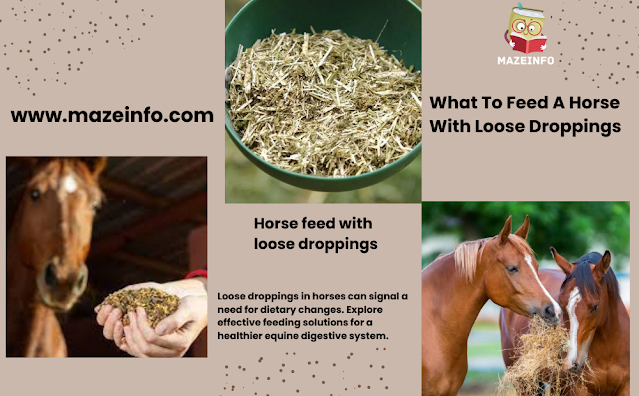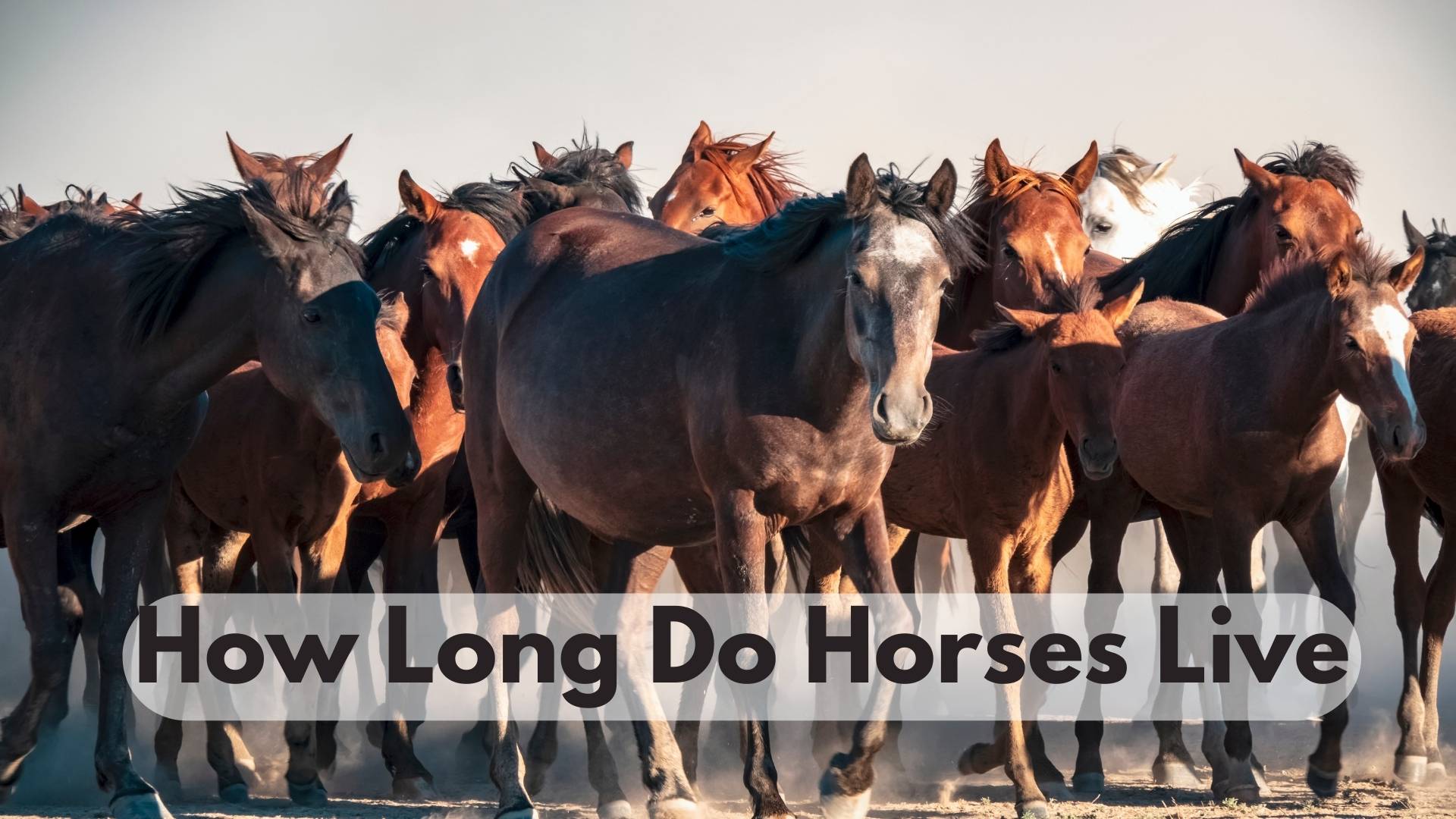Maintaining the health and well-being of a horse is of utmost importance for any responsible equine caretaker. One common concern that horse owners may encounter is the issue of loose droppings, which can be indicative of various underlying factors such as dietary imbalances, digestive issues, or stress. In such situations, a crucial aspect of equine care involves reevaluating the horse’s diet to promote digestive health and address the root cause of loose stools. This article delves into the question, “What to feed a horse with loose droppings?” and provides valuable insights into the dietary adjustments that can contribute to a healthier digestive system for horses. Understanding the relationship between a horse’s diet and its gastrointestinal function is key to promoting overall well-being and ensuring that the horse thrives in its environment.
Quality Forage
The foundation of a horse’s diet should be quality forage, such as good pasture or hay. Ensure that the forage is free from molds, dust, and contaminants that can contribute to digestive upset. High-quality forage not only provides essential fiber for gut health but also supports proper digestion and nutrient absorption. Regular access to clean, fresh forage helps maintain a healthy horse digestive system and can aid in resolving loose droppings.
Select High-Quality Hay
Choosing the right type of hay is crucial in managing loose droppings. Opt for high-quality grass hay, as it provides the necessary fiber without excessive sugars that can contribute to digestive issues. Check for hay that is free from mold, dust, and weeds. Proper storage is also essential to prevent the growth of molds, which can adversely affect find a horse’s gastrointestinal tract. Gradually introduce new hay to allow the horse’s digestive system to adapt, minimizing the risk of loose droppings due to abrupt dietary changes.
Consider Alfalfa Hay for Added Nutrients
Incorporating alfalfa a horse feed hay into the horse’s diet can be beneficial, especially if nutrient deficiencies are contributing to loose droppings. Alfalfa hay is rich in protein, calcium, and other essential minerals, providing a nutritional boost to the horse’s diet. However, it’s essential to introduce alfalfa gradually, as its higher protein content may lead to loose droppings if not integrated slowly into the horse’s feeding regimen. Monitor the horse’s response to the introduction of alfalfa and adjust the quantity accordingly.
Balanced Concentrates

To stabilize a horse’s digestive system, it’s crucial to provide a diet rich in balanced concentrates. These concentrates should include an appropriate mix of carbohydrates, proteins, vitamins, and minerals. Consult with a veterinarian or equine nutritionist to tailor the concentrate mix based on the specific needs health and horse condition of your horse.
Choose a Nutrient-Rich Commercial Feed
Selecting a high-quality, nutrient-dense commercial feed is paramount in managing loose droppings. Look for feeds designed to support digestive health and formulated with easily digestible ingredients. Read the labels carefully, and opt for options that prioritize fiber sources, such as beet pulp or soy hulls, to promote a healthy gut for horses.
Opt for Pelleted Feeds for Digestibility
Pelleted nutrena horse feeds offer advantages in terms of digestibility, as they are processed into small, uniform pellets. This not only enhances nutrient absorption but also minimizes the risk of selective feeding, ensuring your horse receives a well-rounded nutritional intake. Pelleted feeds can be particularly beneficial for horses prone to digestive issues, including loose droppings.
Probiotics
Probiotic Supplements:
- Choose a high-quality equine probiotic supplement that contains beneficial bacteria such as Lactobacillus and Bifidobacterium strains.
- Follow the recommended dosage provided by the manufacturer.
Fermented Feeds:
- Include fermented feeds in the horse’s diet, such as fermented hay or grains. Fermentation introduces natural probiotics into the chewy horse feed.
Yogurt:
- Plain, unsweetened yogurt contains probiotics and can be added to the horse’s food. Start with small amounts to ensure the horse tolerates it well.
Prebiotics
Fiber-Rich Feed:
- Increase the horse’s fiber intake by providing high-quality forage such as good-quality hay. Fiber acts as a prebiotic, supporting the growth of beneficial bacteria in the gut.
Beet Pulp:
- Beet pulp is a good source of fermentable fiber, serving as a prebiotic to support a healthy gut for horses environment. Soak it before feeding to ensure proper digestion.
Psyllium Husk:
- Psyllium husk is another prebiotic that can be added to the horse’s diet. It helps regulate bowel movements and may contribute to firmer stools.
Incorporate Probiotic Supplements
Probiotics are beneficial microorganisms that contribute to the balance of the gut microbiota. Introducing high-quality probiotic supplements into a horse’s diet can enhance the population of beneficial bacteria, such as lactobacilli and bifidobacteria, while suppressing harmful pathogens. These supplements are particularly effective during times of stress, changes in hypp horse diet, or after a course of antibiotics, which may disrupt the natural balance of gut flora.
Include Prebiotic Sources in the Diet
Prebiotics are non-digestible fibers that serve as food for beneficial bacteria in the gut. Including prebiotic-rich sources in the wild horse’s diet can stimulate the growth and activity of these beneficial bacteria, promoting a more stable and balanced gut environment. Common prebiotic sources include certain types of hay, beet pulp, and other fibrous feedstuffs.
Moderation is Key

How to feed a horses with loose droppings involves finding the right balance in their grain intake. While grains are a valuable source of energy, overfeeding can lead to imbalances in the digestive system, potentially worsening loose stools. Therefore, it is advisable to offer grains in moderate amounts, taking into consideration the individual horse’s size, activity level, and overall health.
Limiting Grain to Prevent Overfeeding
To address loose droppings, it is essential to limit the quantity of grains provided to the horse. Overfeeding can overwhelm the digestive system, leading to inefficient nutrient absorption and contributing to loose stools. Consultation with a veterinarian or equine nutritionist can help determine the appropriate amount of grain based on the specific needs and conditions.
Choosing Easily Digestible Grains
Opting for easily digestible grains is crucial for horses with loose droppings. Some grains are gentler on the digestive tract, helping to stabilize bowel movements. Rice bran, oats, and barley are examples of grains that are generally well-tolerated and less likely to contribute to digestive issues. Experimenting with different grain combinations under professional guidance can help identify the most suitable options for the individual horse.
Also, Read More: Everything You Need To Know About Superintelligence
Regular Feeding Schedule
| Time | Feed Type | Amount | Notes |
| 7:00 AM | Hay | 10 lbs | Provide good-quality grass hay. |
| 10:00 AM | Concentrate Feed | 4 lbs | Balanced commercial horse feed. |
| 12:00 PM | Fresh Water | N/A | Ensure access to clean, fresh water. |
| 3:00 PM | Hay | 10 lbs | Another serving of grass hay. |
| 6:00 PM | Concentrate Feed | 4 lbs | Repeat feeding of commercial horse feed. |
| 8:00 PM | Hay | 10 lbs | Final serving of grass hay. |
| 10:00 PM | Fresh Water | N/A | Ensure access to clean, fresh water. |
A regular feeding schedule is the foundation of a healthy equine digestive system. Horses thrive on routine, and maintaining a consistent feeding time each day helps regulate their digestive processes. Aim to feeding a horses your horse at the same times each day, providing a stable and predictable environment that supports proper digestion.
Establish a Consistent Feeding Routine
In addition to adhering to set feeding times, it is essential to establish a consistent best feeding routine for a yearling. This includes offering the same types of feed in a specific order. Horses are creatures of habit, and sudden changes can disrupt their digestive balance, potentially leading to loose droppings. Keep the feeding routine stable to promote a healthy gut.
Avoid Abrupt Changes in Diet
Horses have sensitive digestive systems, and sudden changes in diet can result in loose droppings or other digestive issues. When introducing new feeding a senior horse or making adjustments to their diet, do so gradually. Allow your horse’s digestive system time to adapt to the changes, minimizing the risk of gastrointestinal upset.
Adequate Hydration

Ensuring that your horse stays adequately hydrated is fundamental for digestive health. Loose droppings can sometimes be a result of dehydration, emphasizing the importance of providing access to clean and fresh water at all times. Regularly monitor water intake to guarantee that the horse is consuming enough to support proper digestion.
Ensure Access to Clean, Fresh Water
Clean, fresh water is a cornerstone of equine nutrition. Horses with loose droppings may be prone to dehydration, making it crucial to offer water that is free from contaminants. Regularly clean water troughs or buckets to maintain water quality, encouraging the sweet feed for horses to drink and stay properly hydrated.
Soak Feed if Necessary for Added Moisture
If loose droppings persist, consider soaking the horse’s feed before offering it. Soaking hay or concentrates can add moisture to the diet, aiding in digestion and potentially alleviating the issue. However, it’s essential to consult with a veterinarian or equine nutritionist to determine the appropriate duration for soaking and to ensure that the horse’s nutritional needs are still met.
Monitoring Grazing Conditions
Regular monitoring of grazing conditions is crucial to identifying potential causes of loose droppings in a horses diet. Observing the horse’s behavior during grazing, as well as inspecting the pasture for signs of overgrazing or poor vegetation, can provide valuable insights. Changes in weather conditions, such as heavy rainfall leading to muddy pastures, may also contribute to loose droppings. By staying vigilant and responsive to environmental factors, horse owners can better manage and prevent digestive issues.
Assessing Pasture Quality and Quantity
The nutritional content of the pasture directly influences a adm horse feed horse’s digestive health. Conducting periodic assessments of pasture quality and quantity ensures that horses receive an appropriate balance of nutrients. Overgrazing can deplete essential forage, leading to a lack of fiber and imbalance in the digestive system. Implementing rotational grazing practices, supplementing with quality hay, and, if necessary, providing additional feeds can help maintain optimal nutrition and reduce the risk of loose droppings.
Rotate Pastures to Prevent Overgrazing
Overgrazing is a common cause of loose droppings in horses. To mitigate this issue, implementing a pasture rotation system is essential. Rotational grazing allows pastures to recover and regrow, ensuring a constant and sustainable source of nutrition for horse balancer. By dividing larger pastures into smaller sections and rotating horses between them, horse owners can promote healthy vegetation, prevent overgrazing, and support proper digestive function.
Consult with a Veterinarian

When faced with the challenge of loose droppings in your horse, the first and foremost step is to consult with a qualified veterinarian. Veterinarian equine possess the expertise to assess the specific conditions leading to loose droppings and can offer tailored advice based on a thorough examination. They may recommend diagnostic tests to identify any underlying medical issues, enabling a targeted and effective treatment plan.
Seek Professional Advice for Loose Droppings
Professional advice is invaluable in understanding the root cause of loose droppings and formulating an appropriate course of action. Veterinarians may suggest dietary adjustments, changes in feeding routines, or the administration of specific medications to address gastrointestinal issues. Prompt and accurate intervention by a professional ensures the best possible outcome for your horse’s digestive equine health.
Conduct Regular Health Check-ups for the Horse
Preventive care plays a pivotal role in maintaining a healthy horse’s. Regular health check-ups, even in the absence of apparent issues, allow veterinarians to monitor the horse’s overall condition and detect any potential concerns early on. This proactive approach can contribute to preventing digestive issues, including loose droppings, by identifying and addressing factors before they escalate.
Conclusion
Feeding a horse with loose droppings requires a strategic approach centered around high-quality forage. Prioritizing digestibility, fiber content, nutrient density, and hydration in the forage can positively impact the horse’s digestive health. Consulting with a veterinarian or equine nutritionist is advisable to tailor the high protein horse feed plan to the specific needs of the horse. By providing quality forage, horse owners can contribute to the overall well-being of their animals and potentially mitigate issues related to loose droppings.
Frequently asked questions
Q: Why is my horse experiencing loose droppings?
Ans: Loose droppings in horses can be caused by various factors such as changes in diet, stress, parasites, or underlying health issues. It’s essential to identify the root cause with the help of a veterinarian.
Q: How does quality forage help with loose droppings?
Ans: Quality forage, such as good hay, provides essential fiber that aids in digestion and helps regulate bowel movements. The fiber content in forage can absorb excess water in the digestive tract, promoting firmer stools.
Q: What constitutes high-quality forage for horses?
Ans: High-quality forage for horses includes clean, leafy hay with a good balance of nutrients. Look for hay that is free from mold, dust, and weeds. Alfalfa and grass hays are common choices, but the selection may depend on the horse’s individual needs.
Q: How should I introduce forage to a horse with loose droppings?
Ans: Gradual introduction is key. Start with small amounts of quality forage and monitor your horse’s response. Sudden changes in diet can exacerbate digestive issues, so make adjustments slowly.
Q: Can supplements be beneficial in managing loose droppings?
Ans: Yes, certain supplements, such as probiotics or digestive aids, may support gut health and help regulate bowel movements. However, it’s crucial to consult with a veterinarian before adding any supplements to your horse’s diet.
Q: Are there specific forage options to avoid for a horse with loose droppings?
Ans: While each horse is unique, some may be sensitive to certain forages like lush, young grass. Monitor your horse’s response to different forages and adjust the diet accordingly. Limit access to rich pasture if it contributes to loose stools.



